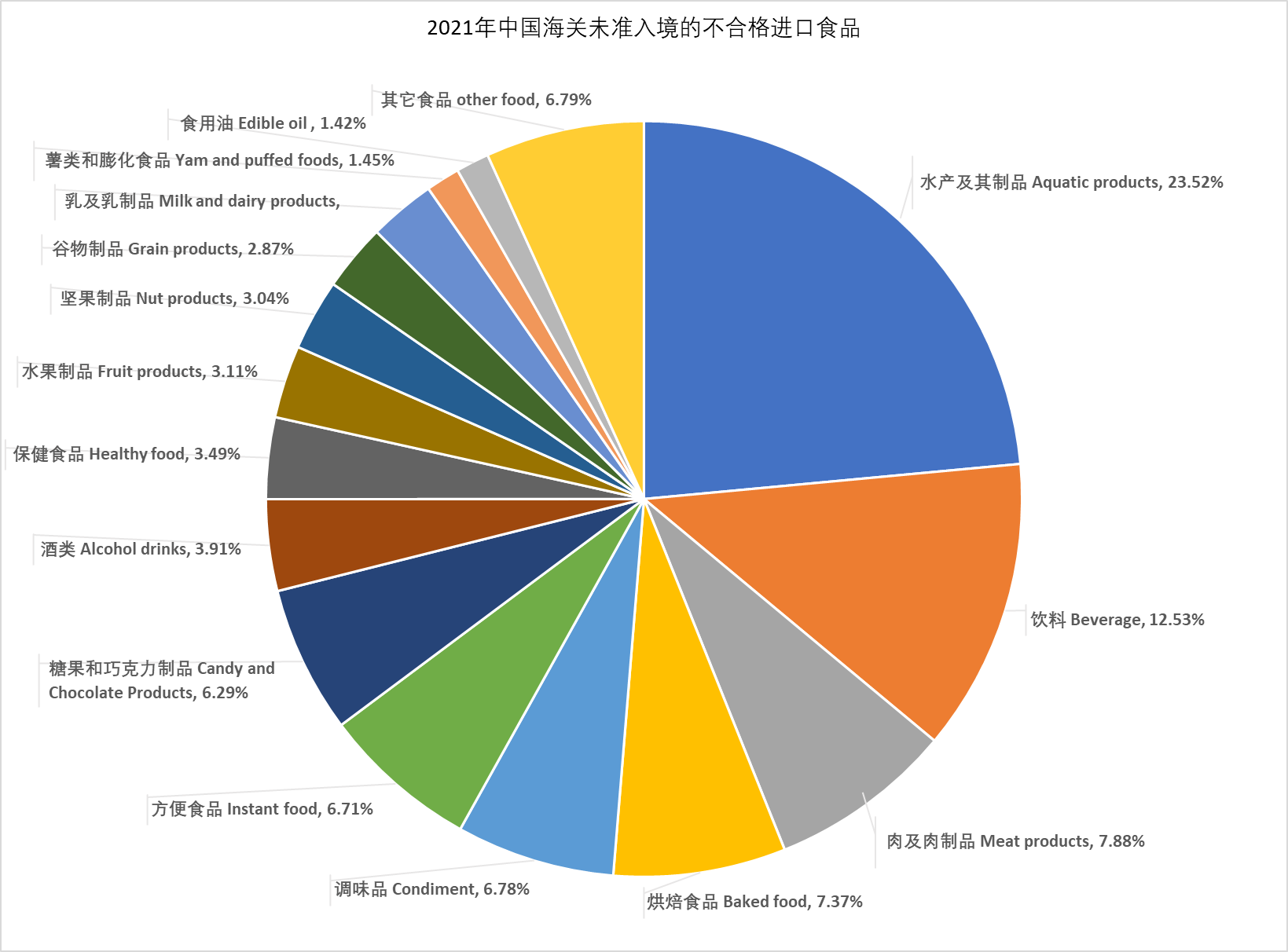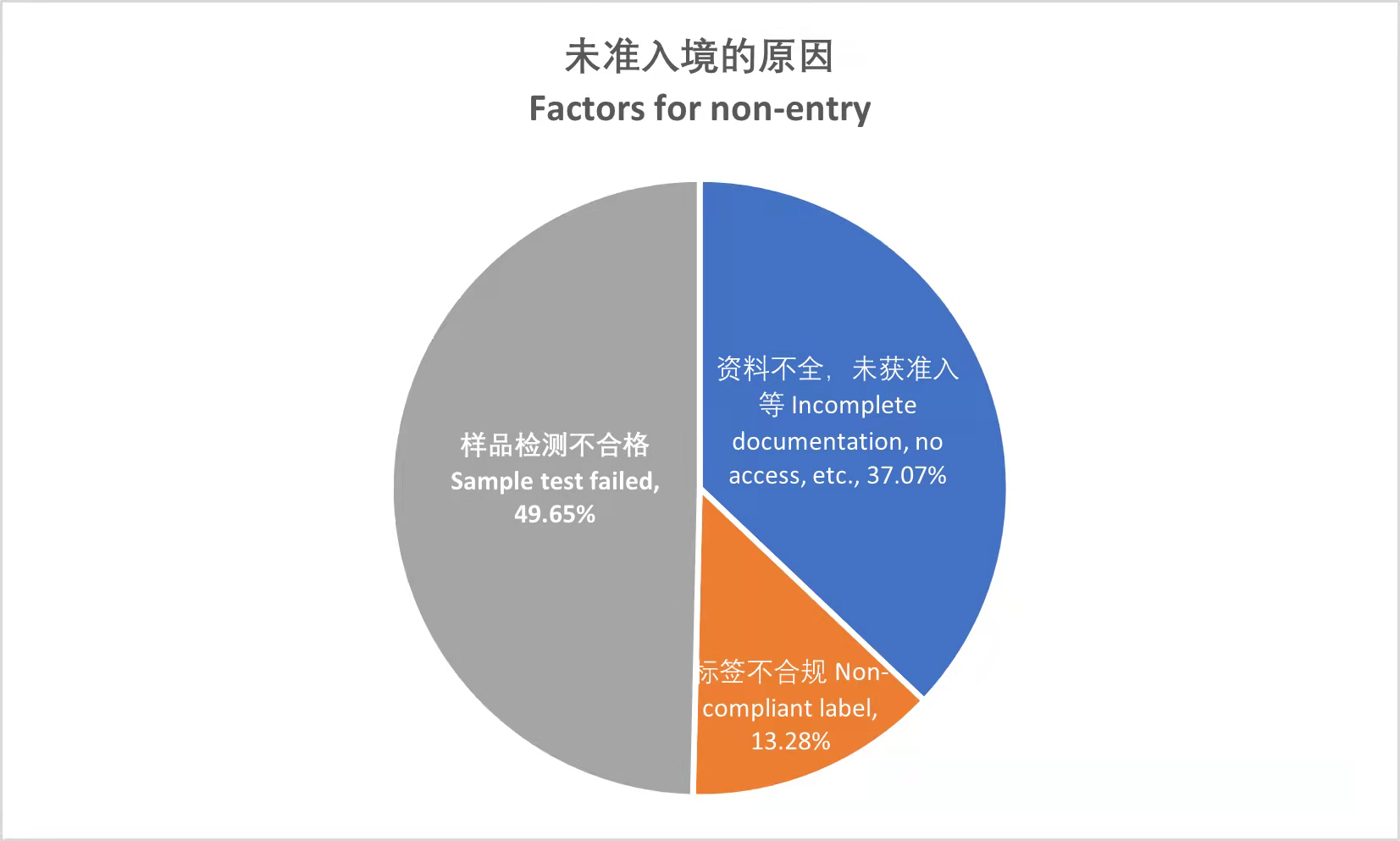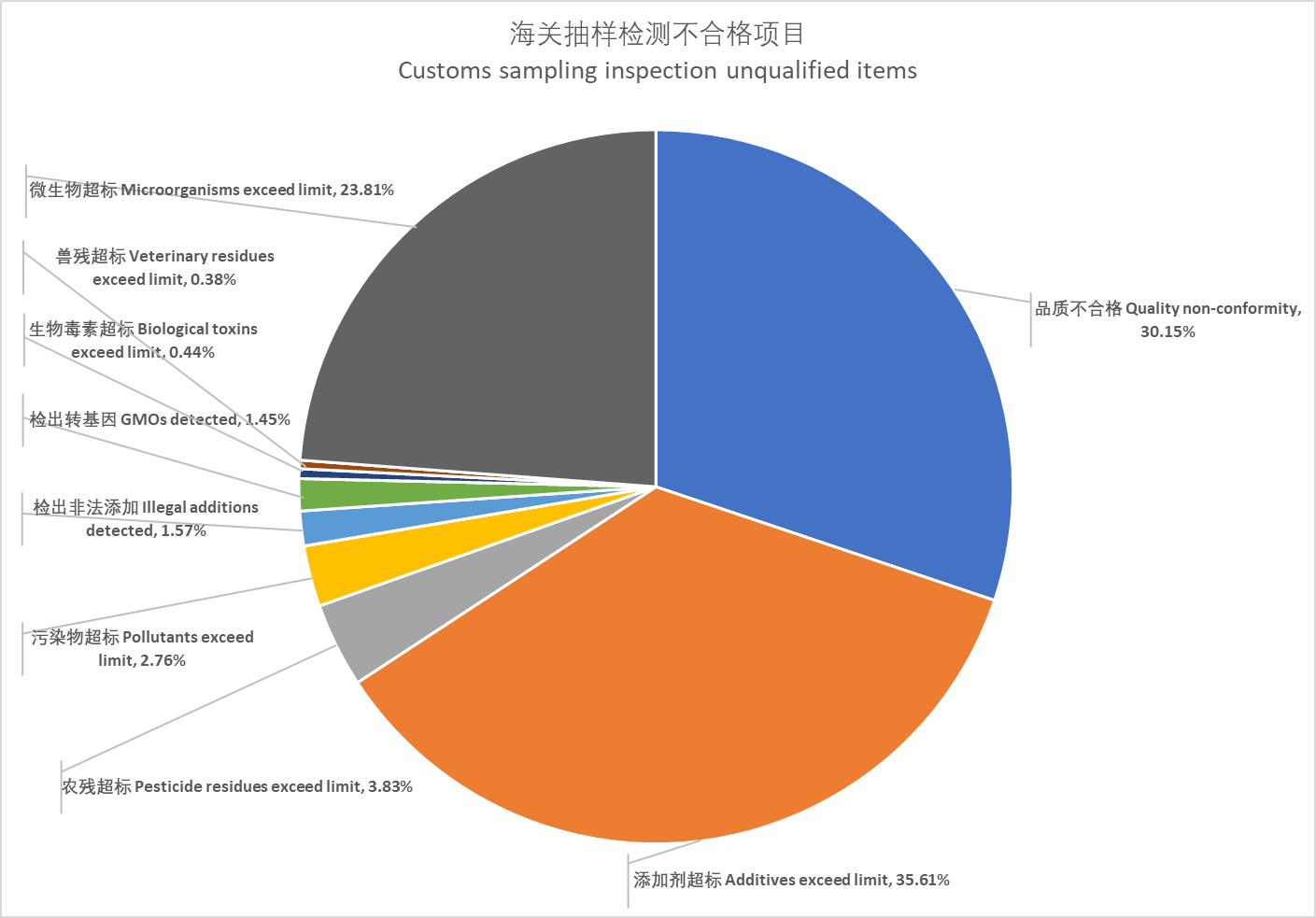
From January to December 2021, a total of 2,892 batches of unqualified imported food were randomly inspected by China Customs, reaching a record high. Products that were not allowed to enter came from 87 countries or regions, involving 28 categories of products. Aquatic products and meat account for nearly 1/3, and it is the category with the highest value of goods returned/destroyed by customs.

The reasons for the failure are divided into three categories, among which the failure of the sample test accounts for nearly 50%.

Among the testing items, additives exceeding the limits, microorganisms exceeding the limits, and quality items unqualified account for nearly 90%.

Imported food is a commodity subject to compulsory inspection. The customs will select batches for inspection according to the control plan. If the inspection fails, the cargo will be returned or destroyed. The relevant trading parties would be listed in the supervision list (blacklist). The number of unqualified foods detected by the customs in 2021 has increased by 55.7% compared with 2020. Among the 87 exporting countries, the United States, Ecuador, Argentina, Brazil, and Canada ranked 5th, 8th, 21st, 22nd and 29th respectively. 49.65% of the failures are caused by the product’s non-conformity to China’s standards. The main reason is that exporters are not familiar with China’s national standard and cannot find a local laboratory that can perform food testing according to China’s national standard. CCIC North American Agrofood Testing Laboratory can provide testing services for food and agricultural product exporters in America, conduct testing according to Chinese customs standards before exporting, and improve customs clearance safety and speed through the cooperation mechanism with customs testing agencies.
Customs clearance consulting experts of CCIC America (United States, Canada, South America) can also provide food exporters with services such as label compliance consulting, ingredient compliance consulting, trade document compliance consulting, etc. The customs clearance risk can be eliminated, and the goods can be delivered with peace of mind.